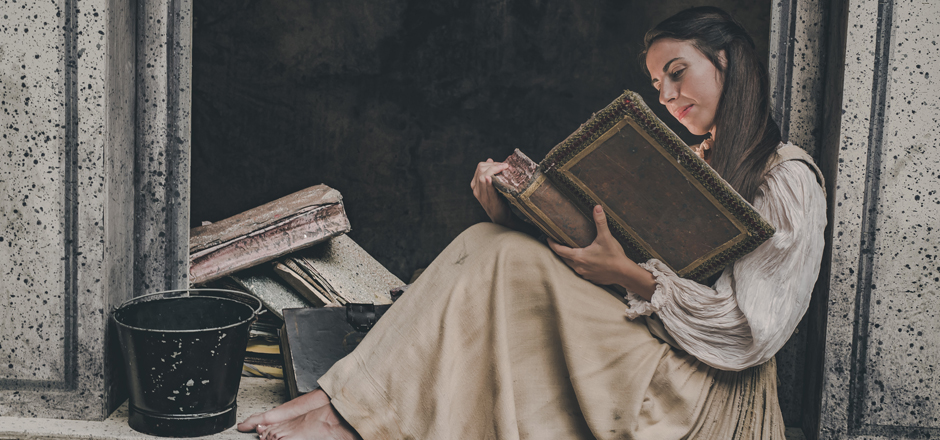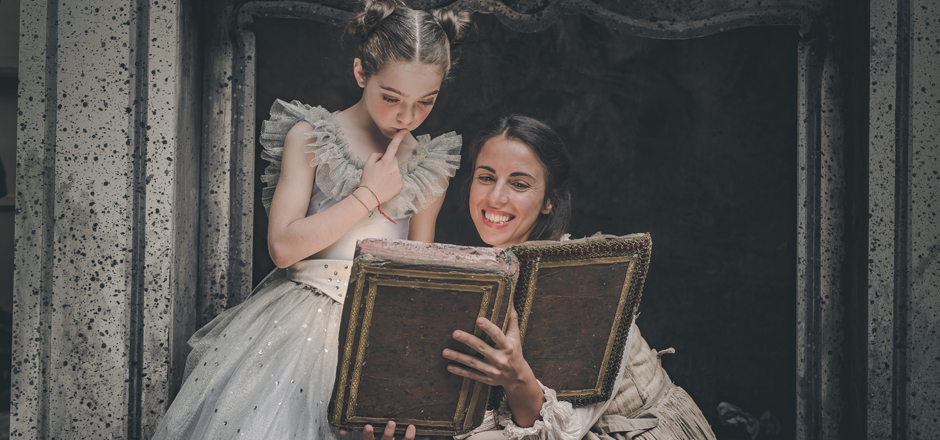Summer season 2017
Opera
La Cenerentola
Cinderella, or rather “The Triumph of the Good”
A playful melodrama in two acts
Music by Gioachino Rossini
Libretto by Jacopo Ferretti, based on the fable by Charles Perrault
First performed: 25 January 1817 at the Teatro Valle, Rome
New staging
Artists
Conductor
Alessandro D’Agostini
Director
Manu Lalli
Scenes
Roberta Lazzeri
Costumes
Gianna Poli
Director of the Choir
Lorenzo Fratini
Orchestra and Choir of the Maggio Musicale Fiorentino
Alessandro D’Agostini
Director
Manu Lalli
Scenes
Roberta Lazzeri
Costumes
Gianna Poli
Director of the Choir
Lorenzo Fratini
Orchestra and Choir of the Maggio Musicale Fiorentino
Angelina (Cenerentola)
José Maria Lo Monaco
Don Ramiro
Matteo Macchioni
Don Magnifico
Marco Filippo Romano
Dandini
Giorgio Caoduro
Alidoro
Mirco Palazzi
Clorinda
Francesca Longari
Tisbe
Ana Victoria Pitts
Fata dei libri
Alice Chiaramida
José Maria Lo Monaco
Don Ramiro
Matteo Macchioni
Don Magnifico
Marco Filippo Romano
Dandini
Giorgio Caoduro
Alidoro
Mirco Palazzi
Clorinda
Francesca Longari
Tisbe
Ana Victoria Pitts
Fata dei libri
Alice Chiaramida
Born in Pesaro on 29 February 1792, son of a trombone player and a singer. He began studying the harpsichord and singing at Lugo, to then enrol in 1806 for cello, piano and composition lessons at the Musical Secondary School in Bologna. He made his debut in 1810 with La cambiale di matrimonio at the Teatro San Moisè in Venice, but his first important successes came with La pietra del paragone (1812) andTancredi e L’Italiana in Algeri(1813). Employed by the impresario Domenico Barbaja as director of the Neapolitan Theatres of San Carlo and the Fondo, with the obligation of writing two operas per year, he composed Otello (1816), Mosè in Egitto (1818), Ermione (1819) and Maometto II (1820). In Rome, between 1816 and 1817, Il Barbiere di Siviglia and La Cenerentola were staged; 1817 also saw the staging of La Gazza Ladra at the Scala in Milan. With Guillaume Tell (1829) he moved away from operatic theatre and dedicated himself to the Stabat Mater (1841) and the Petite Messe Solennelle (1863). He died in Passy, near Paris, on 13 November 1868.


